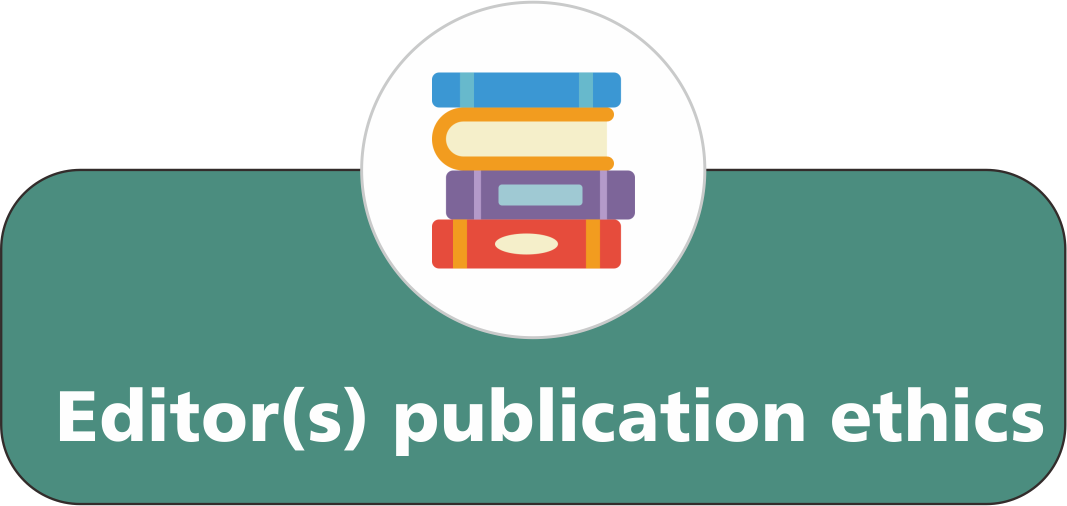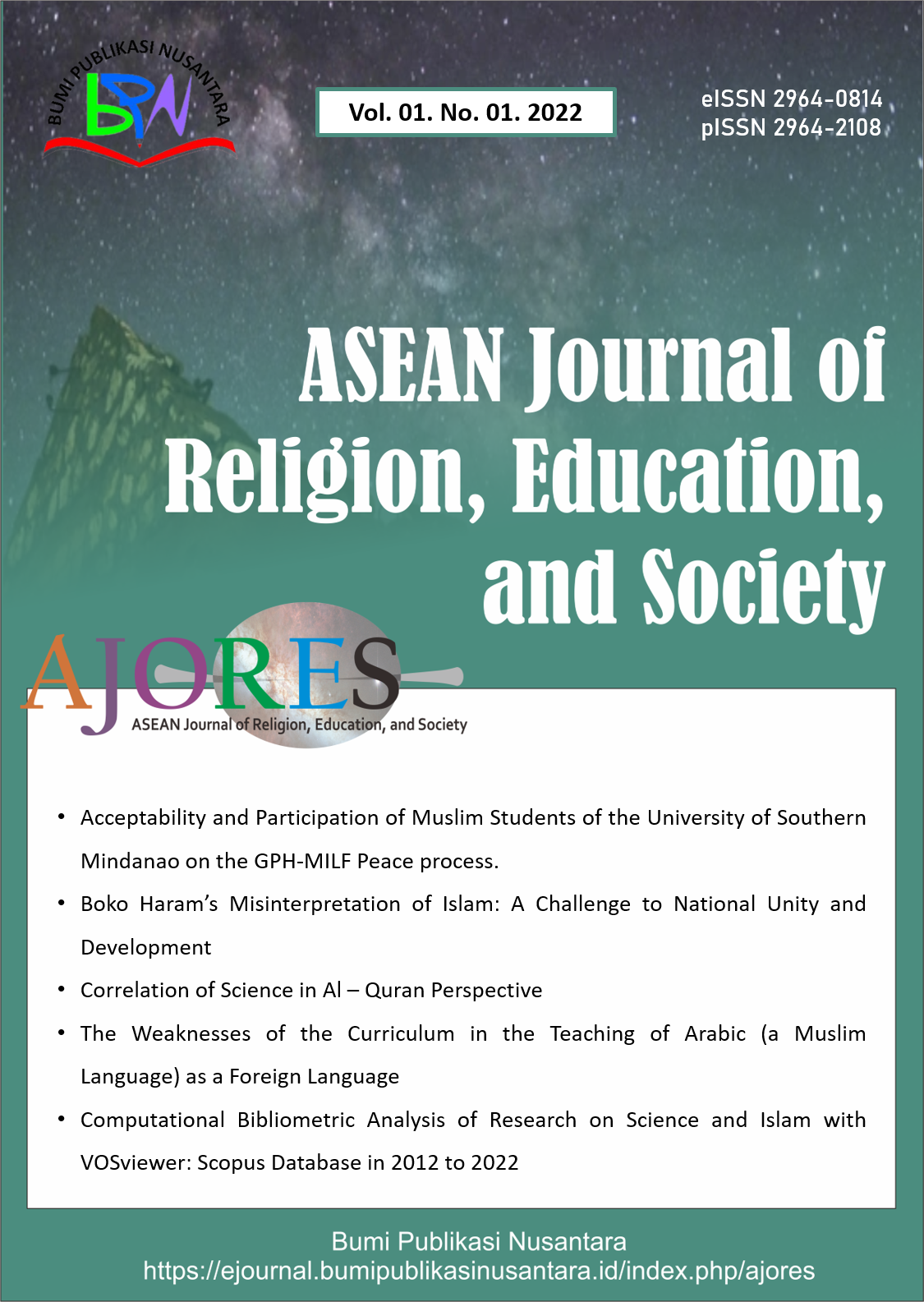The Evolving Role of Religion in Modern Society: Influence, Challenges, and Paths Toward Coexistence
 ),
),
(1) Army Welfare Education Society (APSG)
 Corresponding Author
Corresponding Author
Abstract
Keywords
References
Anggraeni, R., and Maryanti, R. (2021). Implementation of video learning media in Islamic Religious Education subjects. Indonesian Journal of Multidiciplinary Research, 1(2), 257-266.
Azizah, S.N., Nandiyanto, A.B.D., Wulandary, V., and Irawan, A.R. (2022). Implementation of video learning media in Islamic religious education subjects for elementary school students. Indonesian Journal of Multidiciplinary Research, 2(1), 91-96.
Esposito, J. L. (2004). Islam and democracy: The struggle for compatibility. Journal of Democracy, 15(1), 14–29.
Francis, T.T., Mukhtar, B., and Sadiq, K. (2023). Effect of scaffolding instructional strategy and gender on academic achievement of senior secondary school Islamic studies students. Indonesian Journal of Multidiciplinary Research, 3(1), 139-144.
Hidayat, T., Perdana, J., Istianah, I., Saputra, A., Erlina, L., Saket, S.A.S., and Al-Gumaei, A.M.A. (2024). Social media da'wah strategy in implementing Islamic da'wah. ASEAN Journal of Religion, Education, and Society, 3(1), 51-58.
Kayode, A.M., and Jibril, A.O. (2023). Impact of traditional qur'anic schools on Islamic education. ASEAN Journal of Religion, Education, and Society, 2(2), 101-108.
Lindberg, D. C. (1992). Science and the early church. Journal of the History of Ideas, 53(4), 573–598.
Nugraha, H.H., Nandiyanto, A.B.D., Kurniawan, T., and Bilad, M.R. (2022). Education to develop reading literacy by analyzing the intrinsic elements of short stories in Islamic junior high school students’. Indonesian Journal of Multidiciplinary Research, 2(1), 125-130.
Rohim, M.S., and Nugraha, M.S. (2024). Utilizing the philosophy of science to overcome challenges in Islamic education. Indonesian Journal of Multidiciplinary Research, 4(2), 389-398.
Smith, W. C. (1979). Religion as a global phenomenon. Harvard Theological Review, 72(3), 215–230.
Thoriq, M., Sakti, A.W., and Azizah, N.N. (2023). Learning mixed arithmetic operations using whatsapp groups for Islamic elementary school students. Indonesian Journal of Teaching in Science, 3(1), 17-22.
Turner, B. (2011). Religion and modernity: Critical concepts in sociology. Sociological Theory, 29(2), 147–164.
Article Metrics
Abstract View : 639 times
: 639 times Download : 3458 times
Download : 3458 times
Refbacks
- There are currently no refbacks.
Copyright (c) 2025 Bumi Publikasi Nusantara

This work is licensed under a Creative Commons Attribution-ShareAlike 4.0 International License.







